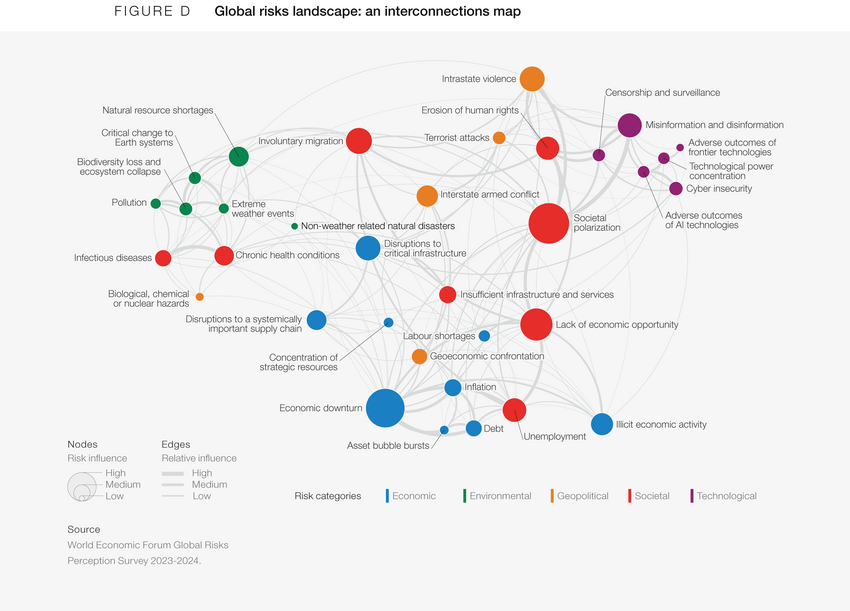The 20th edition of the World Economic Forum’s Global Risks Report, released Wednesday, paints a sobering picture of the global risk landscape, highlighting the growing fragility of the international system. While immediate economic concerns have receded somewhat, geopolitical, environmental, and societal risks dominate both short- and long-term forecasts, signaling potential instability and setbacks for global progress.
The report, based on a survey of over 900 global experts, policymakers, and business leaders, identifies state-based armed conflict as the most pressing immediate risk for 2025, with nearly one-quarter of respondents expressing deep concern about potential escalation. Other immediate threats include misinformation, extreme weather events, and cyber-warfare, which continue to undermine social cohesion and governance systems.
Environmental risks are expected to intensify over the next decade, with climate change, biodiversity loss, and resource scarcity among the leading threats to global stability. Pollution, ranked high in both short- and long-term outlooks, is also recognized as a growing concern, linked to serious health impacts and ecosystem degradation.

The technological risks associated with artificial intelligence and misinformation are also forecast to increase, contributing to a broader sense of uncertainty. Over 60 percent of respondents foresee a fragmented global order by 2035, with deepening divisions between major powers exacerbating existing vulnerabilities. The fracturing of international cooperation and societal polarization threaten to destabilize economies, erode public trust, and complicate efforts to address complex challenges like climate change and inequality.
“The world faces interconnected crises, and coordinated action has never been more critical,” said Mark Elsner, head of the Global Risks Initiative at the Forum. “Leaders must confront these risks head-on and rebuild trust to avoid irreversible damage.”
As the world grapples with these challenges, the report underscores the necessity of multilateral collaboration. With multilateralism under strain, the decade ahead will test the ability of global institutions and nations to cooperate on shared risks, from climate action to economic governance. Strengthening international ties and fostering resilience will be essential to navigating the stormy years ahead.
The Global Risks Report calls for renewed efforts to address interconnected global threats, urging governments, businesses, and civil society to adopt a more collaborative approach to ensure a stable and sustainable future for all.
The Global Risks Report is the World Economic Forum’s flagship publication, offering expert insights into the most critical risks facing the world. Now in its 20th edition, the report aims to inform decision-makers and support global efforts toward collective action.







